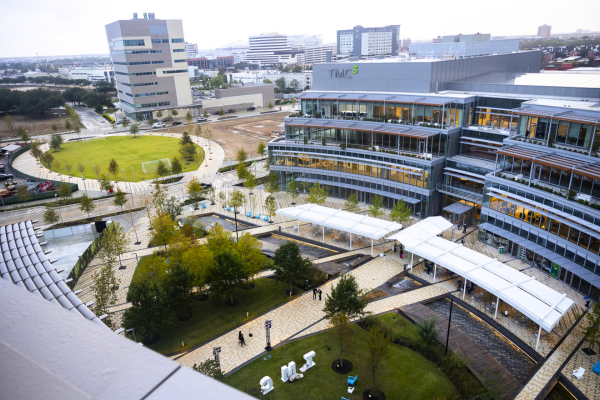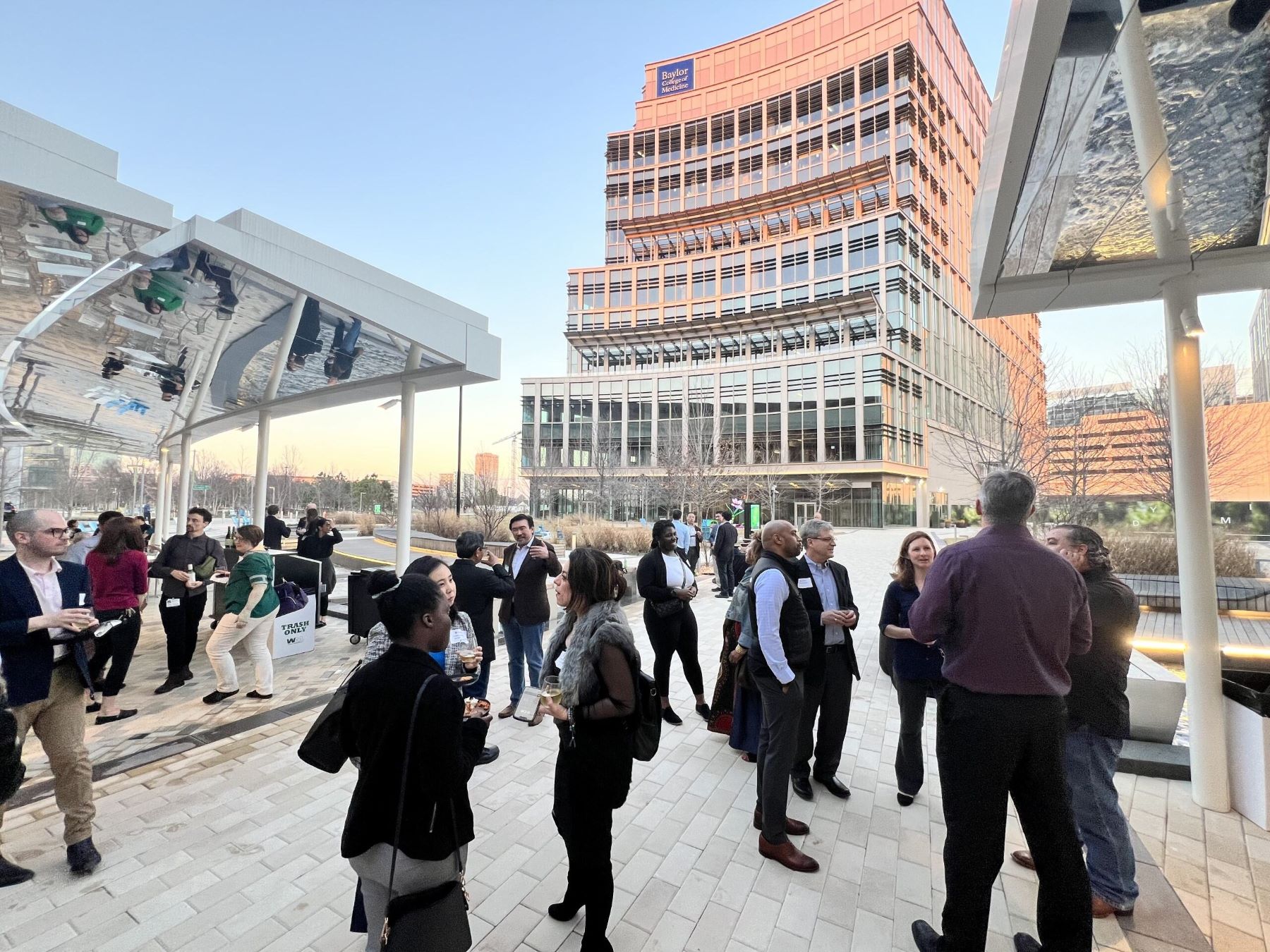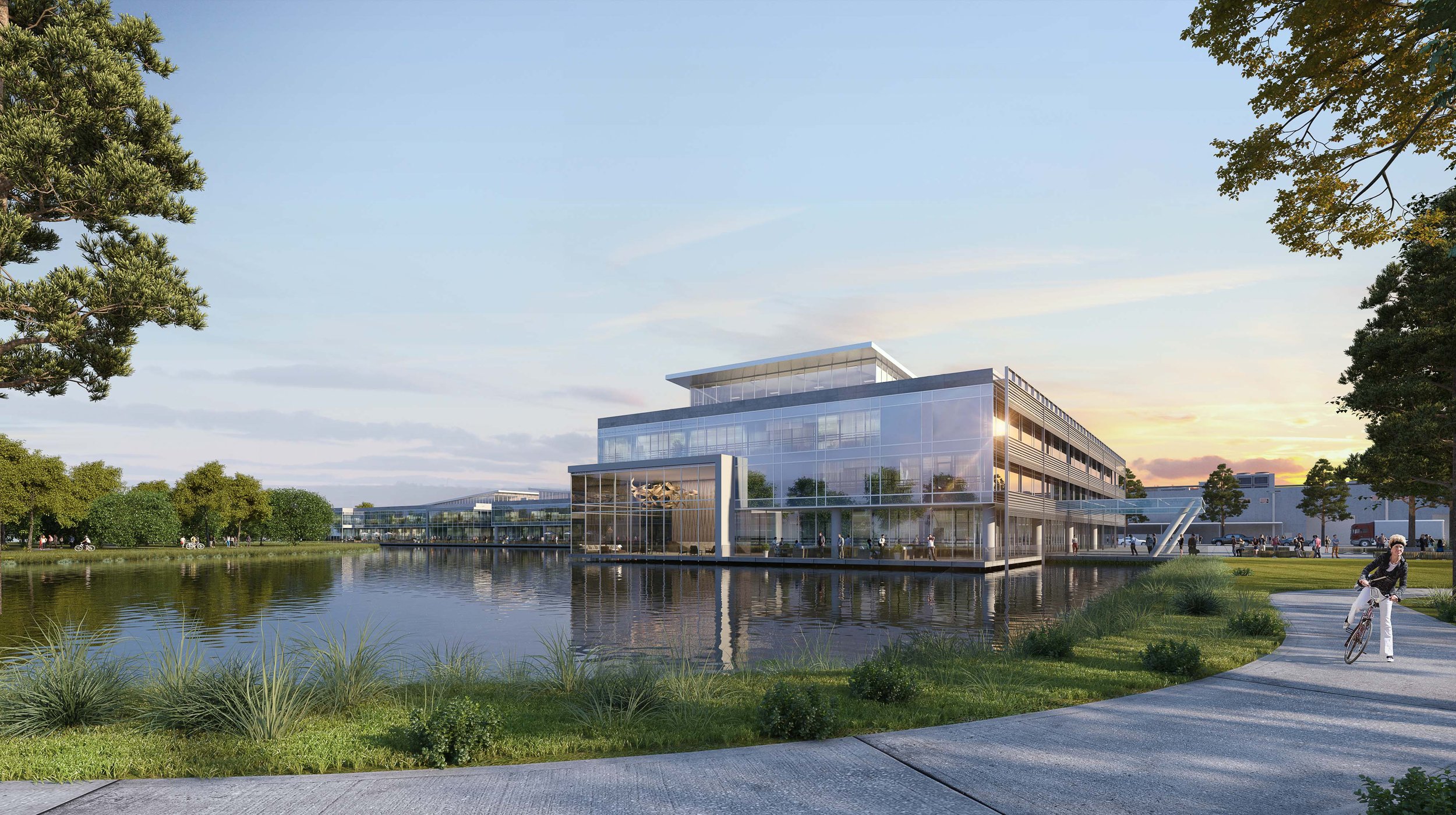One Year In, TMC’s Helix Park Proves to be a Powerful Innovation Hub
Published Nov 07, 2024 by Hailea Schultz
Nearly one year since launching its first phase, the Texas Medical Center’s Helix Park is already proving to be a powerful catalyst for innovation, attracting a range of life sciences companies and bolstering collaboration between industry and academia.
The 37-acre campus opened with the TMC3 Collaborative Building and Dynamic One Building, now home to prestigious institutions like Baylor College of Medicine, MD Anderson Cancer Center, Houston Methodist, Texas A&M University and UTHealth. Chicago-based venture capital firm Portal Innovations also joined the campus last year, occupying the entire third floor of the Collaborative Building with a 30,000-square-foot space.
Growth continues at Helix Park as local institutions and companies expand their research initiatives and establish a stronger presence on campus. Rice University recently launched RBL LLC, a venture creation studio designed to act as a direct pipeline for new companies built around the technologies developed at its Biotech Launch Pad, established last year.
“Leveraging Rice University’s Biotech Launch Pad breakthroughs and pairing it with the world-class translational infrastructure of TMC Helix Park well positions RBL to drive unprecedented advances in patient care,” said William McKeon, President and CEO of TMC, in a statement. “This partnership between academia, industry and health care is exactly what’s needed to transform medical discoveries into real-world solutions that improve lives globally.”
In September, March Biosciences, an emerging clinical-stage biotech company spun off from Baylor College of Medicine, Houston Methodist Hospital, and Texas Children’s Hospital’s Center for Cell and Gene Therapy, moved to the Helix Park campus. Shortly after the move, March Biosciences successfully closed an oversubscribed $28.4 million Series A financing round. This funding will support the Phase 2 clinical development of MB-105, the company’s innovative cancer-fighting therapy.
Switzerland-based biotech company Artidis also recently expanded to Helix Park, securing 2,000 square feet in Portal Innovations’ suite within the Collaborative Building, according to the Houston Business Journal. The company uses nanotechnology to rapidly diagnose cancer and develop personalized treatment plans.
MD Anderson Cancer Center is also increasing its footprint at TMC with a new $239 million, 281,254-square-foot research facility featuring lab and office space. According to the Houston Business Journal, the facility, set for completion in 2028, will focus on advancing preclinical research.
Additionally, the campus welcomed its first restaurant, Ojo de Agua, which offers a blend of Mexican and Mediterranean cuisine, contributing to Helix Park’s vision of becoming a premier destination.
“We are excited to introduce Ojo de Agua to the Texas Medical Center community and present a new spot where members and visitors can connect, celebrate and collaborate while enjoying a unique culinary experience,” said McKeon in a statement. “Food has a way of bringing people together and as our campus continues to welcome visitors from all over the world, Ojo de Agua will showcase high quality, fresh ingredients that reflect the vibrancy and diversity of our community.”
 The Houston Report
The Houston Report





















